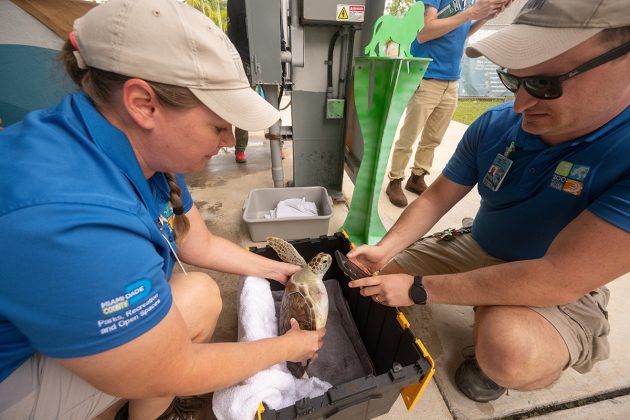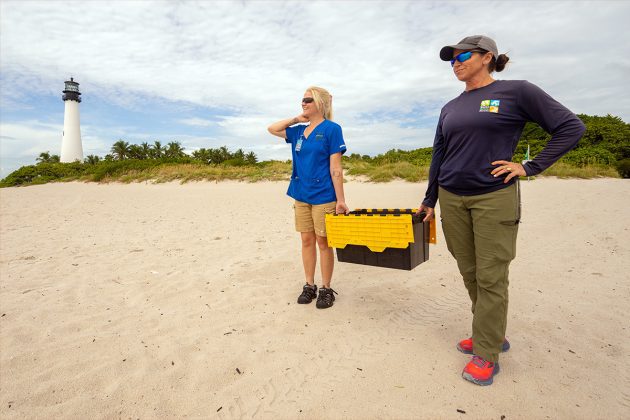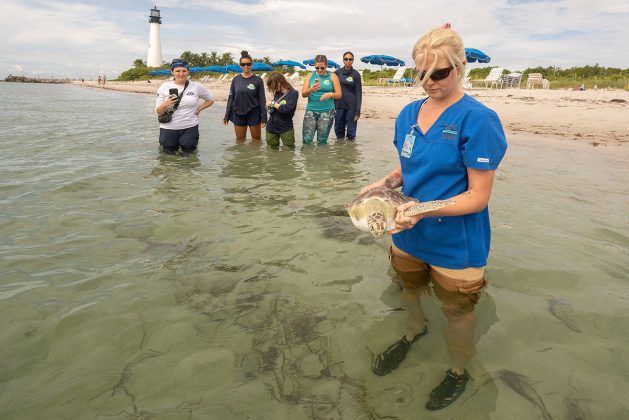|
Getting your Trinity Audio player ready...
|
A juvenile green sea turtle named, “Pumpkin Spice,” was returned to the wild Wednesday morning after receiving several months of critical care at Zoo Miami’s Sea Turtle Hospital.
The young female arrived at Zoo Miami on April 30th suffering from a fishhook entanglement around her right front flipper. Unfortunately, the injury caused by the entanglement led to a severe infection of the bone. Sadly, the infection required the amputation of the flipper to avoid a more systemic infection that could have been fatal.
Pumpkin Spice made a remarkable recovery following the amputation and quickly adjusted to being able to successfully maneuver with three flippers. It is not uncommon for sea turtles in the wild to live normal lives with only three flippers as they are often the victim of shark attacks and other injuries that cause the loss of a flipper. For female turtles, the loss of a rear flipper is more severe because the rear flippers are necessary for the excavation of the nest prior to laying eggs. Not being able to excavate can lead to the turtle becoming eggbound which can lead to serious health complications, the inability to successfully reproduce, and in some cases being eggbound can be fatal.
Having made a full recovery and demonstrating she was able to navigate her way through the water, the Animal Health Team coordinated with Bill Baggs State Park and the Miami-Dade Parks Sea Turtle Conservation Program, to successfully return Pumpkin Spice back to the wild. She was released just a few hundred yards form the iconic lighthouse at Bill Baggs State Park.
Green sea turtles are found throughout the world, nesting in over 80 countries. The south Atlantic population is listed as threatened due to bycatch in commercial and recreational fishing gear, loss of habitat to coastal development, and changing environmental conditions due to climate change. Though protected, they are still the victims of illegal hunting for meat and the collection of eggs for consumption. They are unique in that they are primarily herbivores feeding mostly on sea grass and algae.
Since its opening in June of 2022, Zoo Miami’s Sea Turtle Hospital has received over 150 different individual sea turtles representing five different species. Of those admitted, 59 have been successfully returned to the wild thanks to the critical care provided by Zoo Miami’s Animal Health team.













